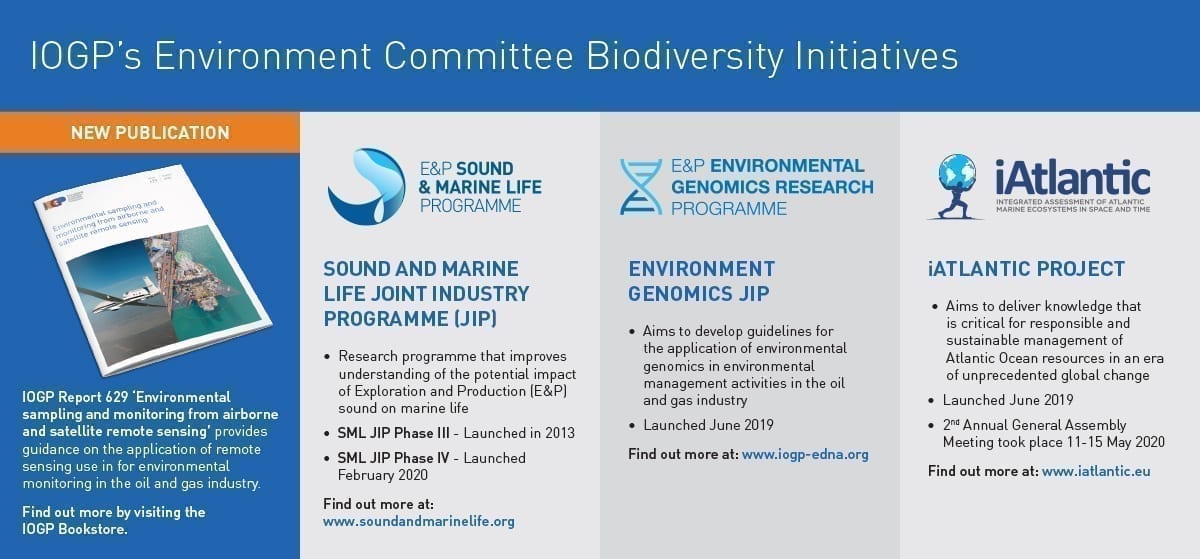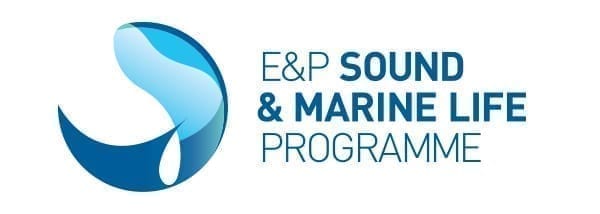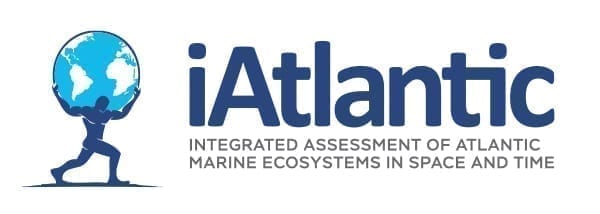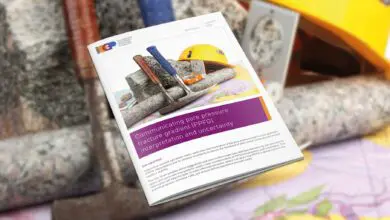
Marking International Day for Biological Diversity 2020
4 ways IOGP protects biodiversity
On May 22nd, we will recognize the International Day for Biological Diversity. It provides the opportunity to increase awareness and understanding of biodiversity issues, celebrate achievements in the conservation of biodiversity nationally and globally, but also to reflect on the ongoing negotiations around a post-2020 biodiversity framework under the UN Convention on Biological Diversity and the recently published EU Biodiversity Strategy.
The oil and gas industry both depend and impact upon biodiversity and ecosystem services (BES). That is why IOGP, jointly with IPIECA, acknowledges that responsible management of BES across the life cycle of oil and gas operations is vital for protecting natural resources. Good biodiversity management can play a decisive role in the success of projects, including meeting stakeholder expectations, avoiding costly redesigns and project delays, maintaining our license to operate, and gaining access to new business opportunities.
In our experience, working together with other users of the landscape, government, academia and civil society at all levels is necessary to achieve the best outcomes and build a future of life in harmony with nature.
IOGP and our members are engaged in many different activities to support biodiversity, here we highlight four IOGP initiatives that address biodiversity management in different ways:
- Funding peer-reviewed research on biodiversity
- Collating knowledge and develop guidelines to broaden use of good practices
- Sharing our knowledge and technical means to assist the scientific community

IOGP Report 629 – Environmental sampling and monitoring from airborne and satellite remote sensing
Environmental monitoring provides actionable insights into environmental conditions over large and sometimes remote areas, but this can be logistically challenging or impractical – in situ surveys can pose a risk to personnel safety and carry a high financial cost. Remote sensing – observations of our planet from satellites, manned aircraft, and unmanned aerial vehicles – has the potential to provide timely and holistic data on potential environmental impacts across the whole industry lifecycle from exploration to decommissioning.

IOGP’s new Report 629 – Environmental sampling and monitoring from airborne and satellite remote sensing provides clear guidance and good practices to environmental professionals and demonstrates how remote sensing may be applied for environmental monitoring across the asset life cycle using real-world examples.
Download the report for free at the IOGP Bookstore, together with the one-page summary.

Environment Genomics JIP
Environmental genomics for the characterisation and monitoring of biodiversity is an emerging application being developed and implemented by academics, industry, and regulators around the world. It has the potential to provide more complete biodiversity data than conventional methods and is faster and more cost-effective.
The Environmental Genomics Joint Industry Programme (JIP34) was launched in 2019 to coordinate research aimed at exploring the application of eDNA-based analyses in environmental assessments and monitoring of oil and gas offshore and onshore operations.

The programme is initially preparing a white paper that links state-of-the-art environmental genomics with technology development opportunities as related to industry specific applications identified by multiple oil and gas companies to help identify and prioritise the key areas where further research and development is required.
For more information, visit www.iogp-edna.org

Sound and Marine Life
Launched in 2005, the Sound and Marine Life research programme works to increase understanding of how the sounds generated by exploration and production activity – especially by seismic surveys – can affect marine life. This research helps governments make regulatory decisions based on sound science as well as the industry develop effective mitigation strategies.

This area of research has been studied by militaries, academia, and regulators, but the Sound and Marine Life JIP has the most extensive industry research programme in this field. It identifies, addresses, and answers key questions around the impact of exploration and production activity which have not been tackled systemically by the existing body of science. Working together with multinational groups, subject matter experts, and NGOs, the programme has already committed USD $60 million to research, and has published more than 140 peer-reviewed scientific publications.
Its research topics include understanding how sound travels underwater, possible effects of sound on marine fauna’s physical and behavioural wellbeing, and how sound can be controlled and potential impacts mitigated, and are designed to help keep the programme at the cutting edge of science by developing new tools.
Find out more at: www.soundandmarinelife.org

iAtlantic Project
iAtlantic is a multidisciplinary research programme seeking to assess the health of deep-sea and open-ocean ecosystems across the full span of the Atlantic Ocean. The four-year project will determine the resilience of deep-sea animals – and their habitats – to threats such as temperature rise, pollution, and human activities.
It has 33 scientific partners from Europe, Brazil, South Africa, Argentina, Canada, and the USA and a wider network of associated partners, and will carry out more than 30 research expeditions to investigate marine ecosystems and their drivers in all corners of the Atlantic. IOGP has committed to support the iAtlantic project as an industry partner, with members offering to provide access to industry data collected in the iAtlantic study areas and opportunities for iAtlantic scientists to partner on planned future marine surveys. IOGP is also a member of its Advisory Board, helping steer the project’s overall progress and direction, and identify opportunities to support innovation and responsible exploitation in the Blue Economy and Blue Growth sectors, and participated last week in the iAtlantic Annual General Assembly
Find out more at: www.iatlantic.eu/ and on Twitter @iAtlanticEU and @iAtlanticGA2020




